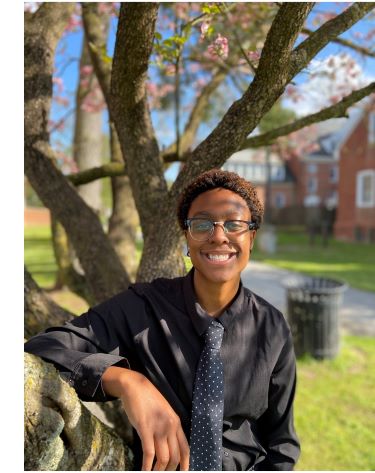
Friday, April 23, 2021
By Jaylah Easter
There comes a time when we, as moral characters with ever-evolving means of language through which to communicate, must examine our definition and implementation of such language.
It is a time when the paradigm of society shifts and, so, the ways in which we communicate and express ourselves must change accordingly.
The trial of Derek Chauvin in the murder of George Floyd is one of those times.
Responses to the Floyd murder, caused when then-officer Chauvin kneeled on his neck for nine minutes and 29 seconds on May 25, 2020, resulting in Floyd’s subsequent asphyxiation and death, were merely media through which an already-burning inferno of outrage at racial inequality could be expressed.
Frustration and suspicion, stemming from the lack of convictions in prior cases of excessive police brutality against Black Americans, laid the foundations for the unprecedented scale of the response to Floyd’s murder.
Following the incident, protests erupted throughout the United States, in response to the loss of yet another Black American to police violence, and around the world, where people of color and minorities in other countries could identify with the sentiment of a police force rampant with racial prejudice and a tendency for excessive brutality.
The relevance of the murder in its nature and execution meant that the engagement of the trial of Chauvin was international. With this political, social, and societal influence on the verdict of such a well-known case (a factor that, sadly, was so often missing in the cases of other Black American victims of police brutality), it is possible to argue the outcome of the verdict was never in question.
It is understandable, then, that when a guilty verdict in a case of police brutality against Black Americans, especially one as high-profile as the trial of Chauvin, is reached, it is equated to justice. Because the archetype of our society is malleable and conducive to change, so, however, must be our definition and association of the term ‘justice.’ No longer should justice be claimed simply if a guilty verdict is reached, if a perpetrator is convicted.
We have progressed, evolved, beyond the superficiality of merely taking actions as they are. Instead, we must examine those outcomes, examine their reasoning, and determine whether a verdict has been rendered because it was deserved, or because social and political pressure demanded it.
It is not, then, whether the guilty verdict in the Floyd murder this week is an act of ‘justice’ but, rather, how the context of this case can be related to its outcome. We must command the same scrutiny, the same integrity, when evaluating and judging cases of every level, regardless of their social and political consequences. We must resist assigning such terms as ‘justice’ to those outcomes, unless we are unequivocally certain that a verdict was passed entirely in and of its own nature.
Otherwise, we risk setting a standard for justice to be achievable only for those cases that are high-profile, widely televised and traction-able. We risk diluting and ambiguating the word ‘justice’, robbing it of any meaning at all because we refused to allow its meaning to adapt alongside us.
Now that such a time is upon us, we must decide what our response to Chauvin’s conviction will be. I felt a conflicting mixture of relief and dissatisfaction when I heard of the conviction. Relief because a murderer had received due process and been convicted accordingly. Dissatisfaction because if a guilty verdict could be reached in this case, why hadn’t it been reached in the countless others?
The words to remember now are “We must.” We must decide whether we will change our language and embrace this period of adjustment or if we will remain stagnant and allow the true meaning of a word to die simply because we were too complacent to reexamine and reflect.
Jaylah Easter is a sophomore in the Richard A. Henson Honors Program who is majoring in engineering. She is a Louis Stokes Alliances for Minority Participation scholar and a peer volunteer in the university’s writing center.

